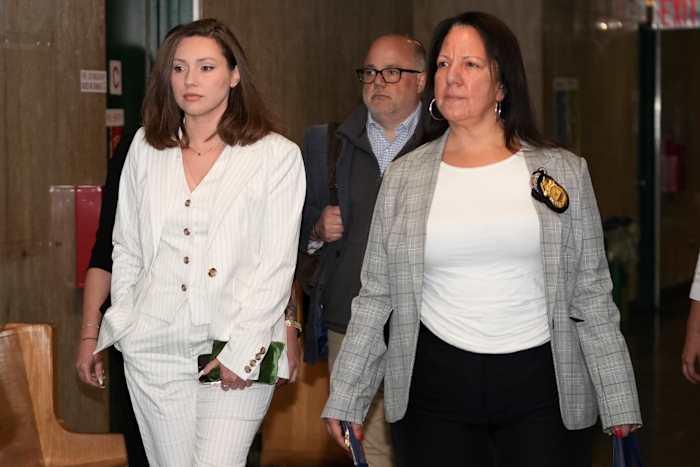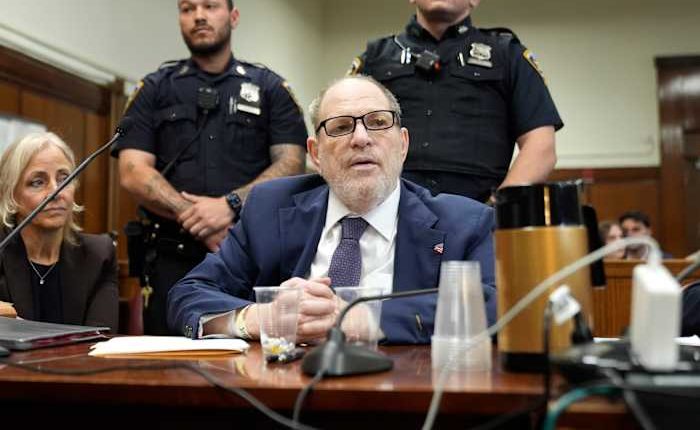Share this @internewscast.com

NEW YORK – Jury deliberations commenced Thursday in the retrial of Harvey Weinstein’s New York sex crimes case, which has become a hallmark of the #MeToo movement.
This jury, composed of seven women and five men, is assessing two charges of criminal sexual act and one charge of rape, each linked to a different accuser and incident. In this retrial, the criminal sexual act count is considered the more serious offense. Deliberations began following the replacement of a juror, who was unable to attend court due to illness, by an alternate.
Weinstein, 73, has pleaded not guilty.
Almost eight years ago, revelations of sexual misconduct involving the Oscar-winning producer ignited the #MeToo movement. These allegations eventually led to legal proceedings and guilty verdicts in both New York and California.
The New York conviction from 2020 was subsequently overturned, leading to the retrial before a new jury and a different judge.
Jurors heard more than five weeks of testimony, including lengthy and sometimes fiery questioning of Weinstein’s three accusers in the case.
Jessica Mann said he raped her in 2013, when she was trying to build an acting career. Miriam Haley accused him of forcibly performing oral sex on her in 2006, when she was looking for work in entertainment production.
Kaja Sokola, who wasn’t involved in Weinstein’s first trial, told jurors that he forced oral sex on her, too, during 2006. At the time, she was a teenage fashion model trying to break into acting.
“They all had dreams of pursuing careers in the defendant’s world, the entertainment industry,” prosecutor Nicole Blumberg told jurors in her closing argument Tuesday. She contended that Weinstein let the women think he was interested in their careers when what actually interested him were their bodies, and “he was going to have their bodies and touch their bodies whether they wanted him to or not.”
Weinstein chose not to testify. His defense called other witnesses, including some former friends of Sokola’s and Mann’s.
Weinstein’s attorneys argued that all three accusers consented to Weinstein’s advances because they wanted help with their Hollywood aims. All three stayed on friendly terms with him afterward, a point the defense emphasized.
“It’s transactional, folks. Yes, he wants to fool around with them, and yes, they want something from him,” defense lawyer Arthur Aidala said in his summation Tuesday.
The Associated Press generally does not identify people without their permission if they say they have been sexually assaulted. Sokola, Mann and Haley have agreed to be named.
Copyright 2025 The Associated Press. All rights reserved. This material may not be published, broadcast, rewritten or redistributed without permission.











